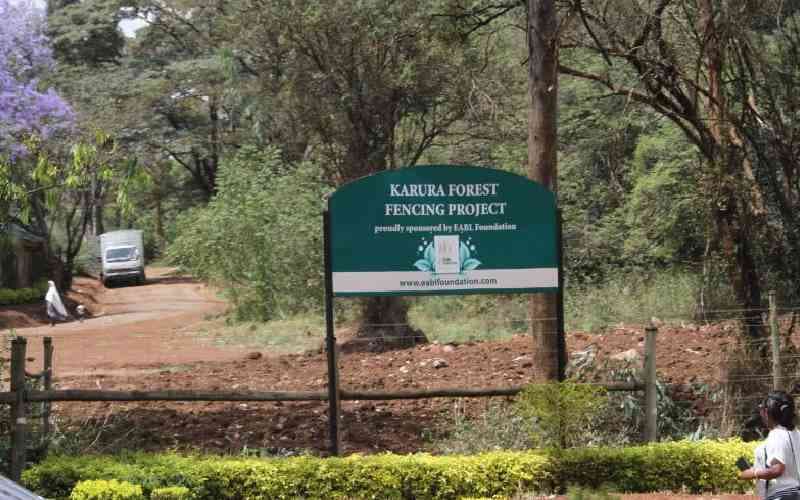We're loading the full news article for you. This includes the article content, images, author information, and related articles.
The Friends of Karura Forest warn that a government directive to channel all payments for Karura Forest through the eCitizen platform threatens to strip the community trust of revenue needed to pay staff and maintain operations, highlighting concerns over transparency and conservation partnerships.

Nairobi, Kenya – A simmering dispute has erupted over the management of Nairobi’s iconic Karura Forest, after the Kenya Forest Service (KFS) ordered that all payments for entry, parking, and visitor services be made exclusively through the government’s eCitizen platform. The move, announced without prior consultation, effectively transfers control of the forest’s revenue from the Friends of Karura Forest (FKF)—the community trust that has co-managed the site for more than a decade—to the state.
FKF leaders say the directive cuts off their principal source of income, which funds staff salaries, rangers, trail maintenance, gate operations, and visitor services. Without a clear revenue-sharing mechanism, the trust fears it will be unable to sustain operations that have underpinned the forest’s remarkable turnaround since the 1990s, when the late Nobel laureate Wangari Maathai and civil society groups fought to protect Karura from land grabbing and destruction.
“This partnership has been a global model of community-driven conservation,” one FKF trustee remarked. “The sudden shift risks dismantling years of work that turned Karura into a safe, thriving public space.”
KFS has defended the new directive, saying centralised collection through eCitizen enhances accountability and transparency in managing public revenues. The system is already used across multiple state agencies to streamline payments and reduce opportunities for mismanagement. However, conservationists argue that transparency must be balanced with community participation and local autonomy—principles central to Karura’s success story.
Environmental advocates warn that undermining FKF’s role could destabilise the delicate ecosystem of trust and cooperation between residents, NGOs, and government. The community-led model has allowed the forest to regenerate, kept crime under control, and turned Karura into a rare urban green haven for thousands of Nairobi residents who walk, cycle, and picnic within its trails.
“Karura is more than just a forest—it is a symbol of civic engagement and environmental resilience,” said a representative from the Green Belt Movement. “Removing community stewardship from the equation risks returning us to the dark days of neglect and mismanagement.”
The standoff reflects a broader national debate over how Kenya manages natural resources: balancing the state’s push for centralised revenue collection with the need for local accountability and sustainability. Similar disputes have emerged in other community–government partnerships, raising questions about the future of co-management frameworks that rely on local buy-in to succeed.
FKF has advised visitors to direct payment-related queries to KFS while it seeks clarification on the way forward. Conservationists are urging dialogue between the government and the trust to establish a transparent revenue-sharing model that preserves both accountability and community-driven stewardship.
For now, uncertainty hangs over Karura’s future operations, with staff salaries, ranger patrols, and maintenance costs at risk. How the standoff is resolved may set a precedent for community conservation efforts across Kenya.
Keep the conversation in one place—threads here stay linked to the story and in the forums.
Sign in to start a discussion
Start a conversation about this story and keep it linked here.
Other hot threads
E-sports and Gaming Community in Kenya
Active 9 months ago
The Role of Technology in Modern Agriculture (AgriTech)
Active 9 months ago
Popular Recreational Activities Across Counties
Active 9 months ago
Investing in Youth Sports Development Programs
Active 9 months ago
Key figures and persons of interest featured in this article